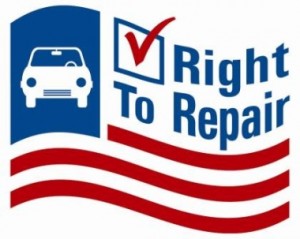 Automotive groups will be banding together to ensure consumers have choices in post-warranty auto repair. The national agreement, which ends the prolonged “Right to Repair” debate within the industry, is based on a recent law finalized in the Commonwealth of Massachusetts.
Automotive groups will be banding together to ensure consumers have choices in post-warranty auto repair. The national agreement, which ends the prolonged “Right to Repair” debate within the industry, is based on a recent law finalized in the Commonwealth of Massachusetts.The signed Memorandum of Understanding (MOU) extends the essential provisions for all light vehicles negotiated in the Massachusetts law nationwide. It impacts all companies and organizations that are currently members of the signatory associations.
The national agreement ensures that automotive aftermarket associations will stand down in their fight on “Right to Repair” and work collectively to actively oppose individual state legislation while the respective groups work to implement the MOU. In the meantime, the parties agree that further state legislation is not needed and could serve to weaken the effectiveness and clarity of the MOU.
The “Right to Repair” act required automobile manufacturers to provide the same information to independent repair shops as they do for dealerships, and has been a point of contention for independent shops and consumers. Since the first Right to Repair Act was introduced in Congress in 2001, the automotive aftermarket has worked to ensure our customers continue to have the right to choose where they buy their parts and have their vehicles serviced. This agreement will ensure vehicle owners will have competitive and quality choices in their repairs while strengthening the auto repair industry nationwide.

